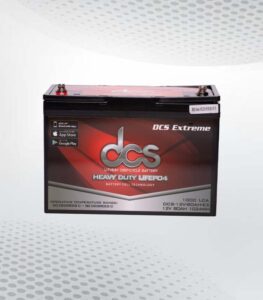There’s always the concern of timing in real estate. Be it an old and seasoned investor or a beginner, actual financing spells the difference between success or disaster in any given deal. Traditional financing options through the bank can take weeks to be processed and approved, which leaves investors vulnerable to missing out on profitable opportunities. This is why one needs bridge loans, which fill in a much-needed gap by closing deals quickly and efficiently.
In this blog post, we will delve into how bridge loans can help you close real estate deals faster, why they are essential in real estate finance and investments, and how they compare to other financing options, including hard money loan rates.
Let’s take a deep dive into how bridge loans work and why they might be the ideal financing solution for your next real estate investment.
What is a Bridge Loan?
A bridge loan is a short-term loan that is designed to “bridge” the gap between the time you need funds and the time your permanent financing or property sale is completed. Generally, bridge loans are used when the buyer wants to purchase a new property but has not yet sold their existing property. These loans provide immediate funding, allowing investors to act quickly in competitive markets where opportunities can vanish fast.
Bridge loans are invaluable for real estate finance and investment when it comes to taking advantage of time-sensitive opportunities. Be it flipping a property, investing in a rental property, or developing a new real estate project, bridge loans provide a flexible, fast, and reliable solution to help you move quickly.
Why Choose a Bridge Loan?
Bridge loans have gained a place as an essential instrument in real estate finance because of their ability to close deals rather quickly. These are some of the key reasons investors choose to use bridge loans:
- Speed of Approval and Funding
In fact, the approval and funding speed of bridge loans compared to traditional bank loans or mortgages could become a consideration for investors since it would allow them only a short period of time before they act, if its application was found to be successful. On the other hand, bridge loans could be approved and funded within days.
This speed is important when timing is everything. Whether you are bidding on a competitive property or need to secure a short-term financing option before selling an existing property, bridge loans allow you to close faster than traditional financing options.
- Flexibility in Usage
As much as bridge loans are versatile for a wide scope of real estate investment activities, they can support the purchase of a new piece of property that is awaiting its sale or bridge a renovation. Bridge loans tend to be versatile and cannot compete with traditional financing in terms of flexibility. As long as residential or commercial activities are involved in real estate investments, the services of bridge loans are often specially tailored to support the specific demands of a particular project.
Additionally, bridge loans are typically secured by the value of the property rather than the borrower’s creditworthiness, making it easier for investors to secure the financing they need.
- Less Stringent Qualification Requirements
Traditional loans often come with stringent qualification requirements, including a high credit score and significant documentation of your financial history. Bridge loans, on the other hand, are typically easier to qualify for because they are asset-based. This means the lender focuses more on the property value being sold rather than a personal financial record. Provided the property has the value to finance the loan, bridge loans could be approved faster with minimal documents.
This therefore makes bridge loans an attractive facility for investors, who may have less-than-ideal credit profiles but still find it necessary to take advantage of lucrative real estate opportunities.
- Short-term financing
Bridge loans are designed to be short-term, lasting anywhere from six months to a year. This makes them ideal for situations where you only need financing for a brief period, such as during a property flip, development project, or while waiting for the sale of an existing property.
In most instances, bridge loans are paid off when more permanent financing is acquired or the property is sold. In this manner, you are allowed to seamlessly move into long-term financing without any disruption in your real estate strategy.
How Do Bridge Loans Work in Real Estate Investments
To understand how bridge loans work, let’s take a typical scenario. You are an investor who has found a promising property for sale but doesn’t have the funds readily available to purchase it. You still need to sell your current property to free up capital for the new purchase. However, the window of opportunity is closing fast, and you need to act quickly.
This means that during the waiting time when your present property is going to be sold, you may secure a bridge loan to cover the purchase of your new home. The value of the new home will then serve as collateral, and therefore you can finance the purchase without necessarily waiting for mortgage approval in traditional terms.
Once your current property sells, you can pay off the bridge loan, and you are free to move into a long-term financing solution or reinvest the funds into another property.
This flexibility makes bridge loans an indispensable tool in real estate finance and investments, particularly for investors who need quick access to capital.
Bridge Loans vs. Traditional Financing: How They Compare
Although they have a series of benefits offered, bridge loans should be perceived in relation to other forms of real estate funding, especially within the framework of hard money loan and traditional financing through a local bank.
- Bridge Loan vs. Hard Money Loan
Bridge loans as well as the hard money loan are short-time financing, suitable for investment for real estate purchase, but also serve for various purposes.
Hard money loans are usually applied to specific projects, like property flips or renovations. They are secured by the property itself, just like bridge loans, but they are usually pricier when it comes to interest rates and fees. Because of the increased risk, the hard money loan rates are often higher, but they provide quick, flexible financing options for those who need fast access to capital.
On the other hand, bridge loans are more general purpose and can be used for almost any kind of real estate transaction, like purchasing properties before selling others or acquiring capital for new developments. The interest rates of bridge loans tend to be more competitive and could be easier to obtain than those of hard money loans, depending on the borrower’s situation.
- Bridge Loans vs. Traditional Bank Loans
For many real estate investors, traditional bank loans are a way to fund an investment, although these may involve slow processing due to lots of paperwork and extended approval time along with stiff qualification criteria. In contrast, bridge loans have a quick processing requirement for the same, with approvals and funds arriving in record time.
While bridge loans have higher interest rates than regular bank loans, they offer the speed and flexibility most investors require to capitalize on time-sensitive opportunities.
- Bridge Loans for Flipping Properties
For real estate investors looking to flip properties, bridge loans provide the necessary capital to purchase, renovate, and sell properties quickly. Their short-term nature fits perfectly with the quick turnaround required in property flipping. Because bridge loans are based on the value of the property, rather than the borrower’s credit score, they provide fast access to the funds needed to complete a flip.
If you are looking for a fix-and-flip project, Metro View Capital offers competitive rates on bridge loans. For more information, visit our bridge loan services.
Why Metro View Capital is the Ideal Partner for Your Bridge Loan Needs
It helps finance real estate through flexible fast-access financing schemes here at Metro View Capital, thus catering for varying needs like short-term fix rate hard money loans or that single bridge loan one needs in case of urgency over a particularly tough closing timeline.
We understand the need to act fast, especially with the pace at which real estate issues run across the world. This is why we offer competitive rates, fast approvals, and personalized service to ensure you get the capital you need fast.
Visit Metro View Capital to learn more on how we can support your real estate finance and investments needs and help you close deals faster with a bridge loan.
Conclusion
In the competitive world of real estate, timing really counts. Bridge loans offer an investor a tremendous tool to close deals with incredible speed. They provide speedy access to capital without the lengthy approval process required by traditional financing. With the help of bridge loans, investors can act speedily to secure favorable properties and capitalize on time-sensitive opportunities without missing anything.
Whether you are purchasing a new property, flipping homes or securing transitional financing, with the help of bridge loans, you might make all the difference in real estate finance and investments. Collaborate with Metro View Capital for flexible, fast, and reliable financing solutions catering to your needs.
Connect With Us
We’re here to answer all your questions about real estate financing and help you achieve your investment goals! Stay updated with the latest insights and opportunities by connecting with us on social media:
Facebook: https://www.facebook.com/metroviewrcapital/
Instagram: https://www.instagram.com/mvc_nyc/
Partner with Metro View Capital and explore the possibilities for your real estate investments!




